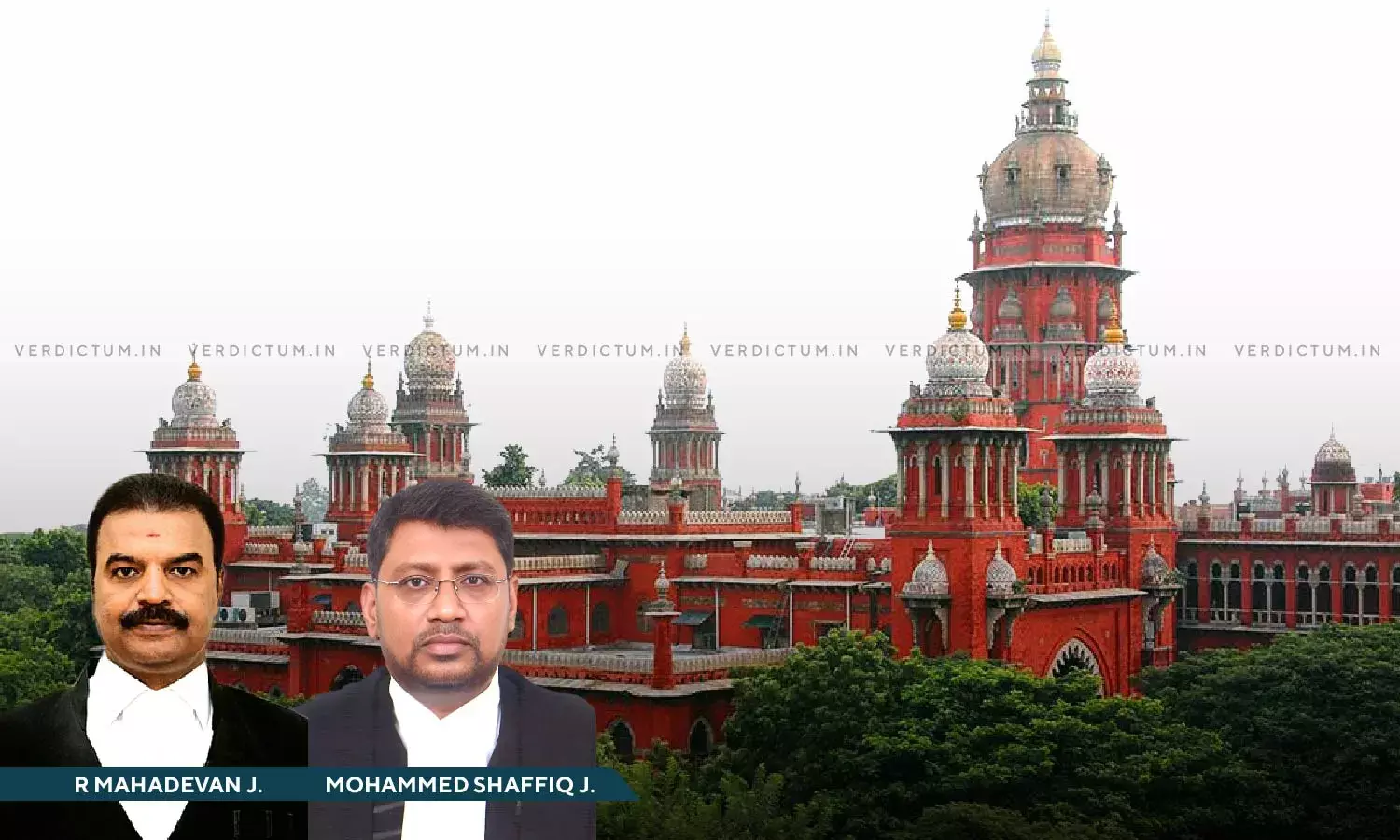Tribunals Have No Authority To Issue Instructions Determining Dress Code For Appearance Of Advocates Before It: Madras HC

The Madras High Court has recently held that the Tribunals have no authority to issue any instructions determining the dress code for the appearance of the advocates before it.
The Court quashed the notification issued by the Registrar of National Company Law Tribunal (NCLT) making it mandatory for the advocates appearing before its bench to wear gowns.
A Division Bench comprising Justice R. Mahadevan and Justice Mohammed Shaffiq held, “In absentia, the rules in chapter IV of the Bar Council of India Rules shall prevail and the Tribunals have no authority to issue any instructions determining the dress code for the appearance of the advocates before it. When there are statutory rules framed by the competent authority and when the statute has conferred the powers on the High Court with reference to prescription of the dress code, any instruction, direction, advisory by the Tribunal, especially when it runs contrary to the statutory rules, is ultravires the Act, and without there being any source of power for issuance of such directions.”
The Bench said that it is trite legal position that the orders of the Tribunals, either judicial or administrative, are subject to judicial review of the High Courts, as they are subordinate to it.
“From the conjoint reading of Section 34 of the Advocates Act and the Bar Council of India Rules, extracted above, it is clear that only the High Courts can frame rules for dress code for the appearance of the Advocates before it, the courts and Tribunals, subordinate to it”, the Court further noted.
Advocate R. Rajesh appeared as petitioner-in-person while Advocate V. Venkatesan and Advocate S.R. Raghunathan appeared for the respondents.
In this case, the petitioner was an Advocate practicing in the Courts and Tribunals at Chennai, including the NCLT. He was also a member of the Institute of Company Secretaries of India. He came forward with the Public Interest Litigation for a writ of declaration to declare the Order dated November 14, 2017 passed by the NCLT, insofar as it relates to imposition of dress code for advocates for appearance before the Tribunal as ultra vires, null and void.
The petitioner further prayed for allowing the writ petition and setting aside the said NCLT order. Earlier, the High Court granted an interim stay when the petition was listed for hearing holding the order to be in conflict with the rules of the Bar Council of India which make wearing of the gowns mandatory for the advocates only when they appear before the High Courts and Supreme Court.
The High Court in the above regard asserted, “… the wearing of “gown” is only optional and not mandatory before any courts other than the Supreme Court or the High Courts. … Similarly, the words ‘such other powers” used in Rule 16 (f) of the NCLT Rules, 2016 has to be read keeping in mind the later part of the rule dealing with the administrative power of the President as head of the Tribunal, while dealing with the staff, and cannot be stretched to mean to include the power to frame any rule or issue any instruction, in the nature of the one impugned, to prescribe the dress code for the advocates.”
The Court further observed that the instruction given by the NCLT runs contrary to the Rule 124 of the NCLT Rules which states that the professionals shall follow the dress code as prescribed in their code of conduct.
The Court, therefore, quashed the impugned order of the NCLT regarding the dress code of the advocates.
Accordingly, the Court allowed the writ petition.
Cause Title- R. Rajesh v. Union of India & Ors.
Click here to read/download the Judgment


